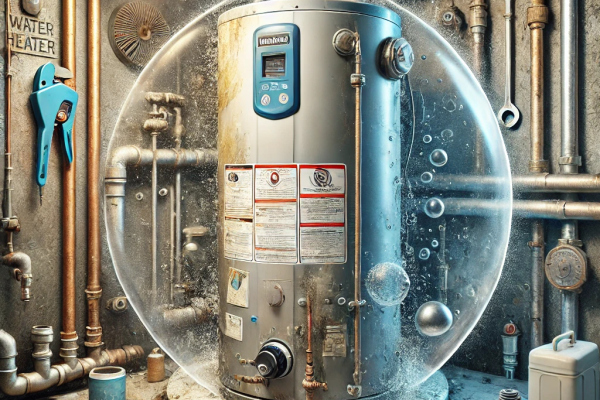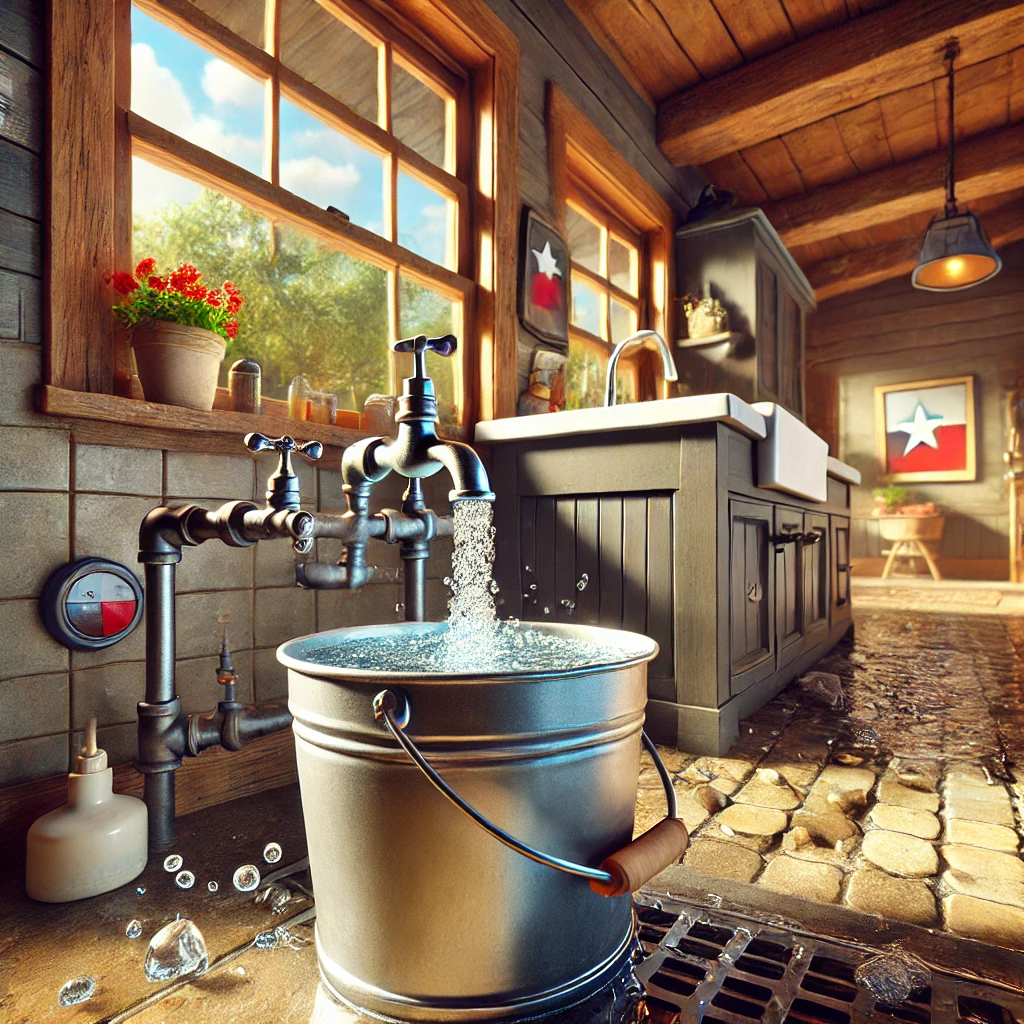
Why is My Water Heater Making Noise? Causes and How to Fix It
Have you heard strange noises coming from your water heater? This might not just be an annoying sound, but a signal that the unit needs maintenance. Many homeowners face this issue, and while sometimes the noises may seem insignificant, they can indicate important problems with the water heater. In this article, we will thoroughly explain why water heaters make noise, how to avoid these issues, and what to do to fix the problem.
Why is Your Water Heater Making Noise?
Water heater noise is a fairly common issue. However, it's important to understand that such sounds do not always indicate serious malfunctions. In most cases, they are linked to normal processes inside the unit, but sometimes the noise could be a sign of a malfunction that needs to be addressed.
To understand what causes the noise, it's helpful to know what happens inside a water heater. The water inside is heated using electric or gas heating elements, as well as various pipes and valves that interact with each other. Different sounds may indicate different causes, so let's break down what could be causing these noises.
Buildup of Limescale
One of the most common causes of noise in a water heater is the buildup of limescale on the heating elements. This is especially relevant for people living in areas with hard water, as is often the case in Texas. When the water contains high levels of minerals such as calcium and magnesium, these minerals settle on the surface of the heating elements. This slows down the heating process and causes air bubbles to form, which can create loud popping and hissing sounds. Over time, this can lead to more noise unless the buildup is removed.
Heating Elements
Another cause of noise could be faulty or damaged heating elements. These elements can become covered with mineral deposits or suffer wear and tear over time. This also leads to improper operation of the water heater, causing vibrations and sounds. Sometimes, heating elements make cracking or popping noises, which might resemble the sound of boiling water, even though the system is not overheating.
Dirt and Debris in the Tank
The water entering the water heater can contain various impurities and debris, such as sand, dirt, or rust particles. Over time, these substances can accumulate in the tank, reducing the efficiency of the unit and causing noise. When debris settles at the bottom of the tank, it can cause additional vibrations and noises because the water cannot circulate properly.
Excess Pressure in the System
Another reason for noise could be excessive pressure in the water supply pipes. In this case, water will move more forcefully through the pipes, which can cause noise in the water heater itself. Sometimes, the noise is caused by the valves not functioning properly under high pressure, leading to vibrations and additional sounds.
Faulty Thermostat
The thermostat in a water heater regulates the water temperature, and if it fails, it can cause the unit to operate incorrectly. For example, if the thermostat cannot maintain a stable temperature, it may cause the water to overheat or not heat up enough. In such cases, the water heater may make noise because the components are trying to compensate for temperature fluctuations.
Problems with Valves and Pipes
In some cases, the noise may not come from the water heater itself but from the pipes or valves in the water supply system. If the pressure relief valve or the pipes supplying water to the water heater are clogged or damaged, they can also produce unusual sounds. These noises are often louder and may sound like dull thuds or knocks.
Age of the Unit
Finally, consider the age of your water heater. Older units tend to make more noise as their components wear out. This can include the deterioration of heating elements, thermostats, or other parts of the unit.
How to Fix the Noise?
Depending on the cause of the noise, there are several ways to resolve the issue. Some solutions can be done yourself, while others may require the intervention of a professional. Let's go over how to fix each type of noise.
Descaling the Tank
If the cause of the noise is a buildup of limescale, you can clean the water heater using special descaling solutions that dissolve the minerals. In most cases, this requires turning off the unit and draining the water before adding the cleaning solution. It's important to clean your water heater regularly, especially if you live in an area with hard water, like Texas, where minerals in the water are more abundant.
Replacing the Heating Elements
If the noise is coming from the heating elements, it’s likely that they need to be replaced. This is usually a straightforward procedure that you can do yourself if you have experience with water heaters. However, if you're unsure of your skills, it's better to call a professional to avoid causing any damage to the unit.
Removing Dirt and Debris
If debris has accumulated in the tank, it can be removed by draining the water and cleaning out the tank. You can use a hose or other tools to gently remove the debris, but make sure not to damage the tank. If you're not confident in your abilities, this process is best left to a professional.
Adjusting the Pressure
If the noise is due to high pressure, you should install a pressure regulator, which will help balance the water pressure in the supply system. This is a relatively simple procedure but requires precision to avoid damaging the plumbing system.
Replacing the Thermostat
If the problem lies with a faulty thermostat, it needs to be replaced. You can order a new thermostat and install it yourself if you have the necessary tools and experience. If not, calling a professional will help ensure that the job is done correctly.
When to Call a Professional?
If, after following all the steps above, the noise persists, or if you're unsure about carrying out the repairs yourself, it’s better to call a professional plumber. Water heaters are complex appliances, and attempting to repair or service them without proper experience can lead to further problems.
In Texas, where the climate can create additional challenges for water heaters (such as temperature fluctuations or hard water), regular maintenance is especially important. A professional will not only fix the noise but also perform a diagnostic check on the system to prevent other potential issues.
Conclusion
Water heater noise is an issue that can often be resolved by identifying the cause. In most cases, the problem is simple and can be fixed by removing limescale, cleaning the tank, or adjusting the pressure. However, if the problem persists or if you're unsure about making the repairs yourself, it’s always best to call a professional. Regular maintenance of your water heater is the key to ensuring its long-term performance and reliability.
If you live in Texas and are dealing with a noisy water heater, don’t hesitate to contact our team of professionals. We are ready to help you quickly and effectively resolve the issue, so you can enjoy the comfort of your home without the annoying sounds.






